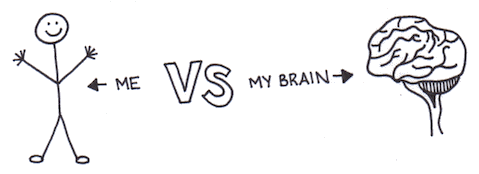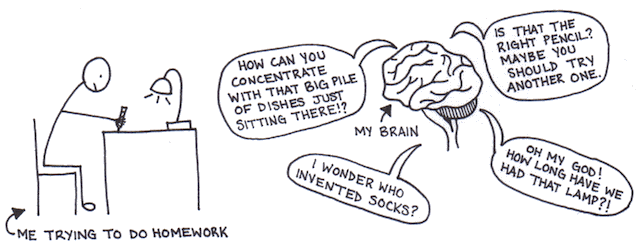
When I was in first grade, they sent me to the Board of Education psychologist to be tested for ADD, and he said I didn't have it.
They sent me again in second grade, and again in third grade . . . and again and again he said I didn't have it.
According to the B. of E. psychologist, I was just really smart and got bored when asked to fill out a worksheet that was pretty much the same as the worksheets I'd filled out for the last four days, and so I would either rush through it or abandon it and then I would want to talk to my classmates because I was social. The B. of E. psychologist came to the conclusion that I did not have ADD due to the fact that I was able to focus intently on the tasks he tested me with.
When I got to university, my doctor made a comment one day about me having ADD, and I explained about the testing and that I didn't have it. But she said that back in the '80s, when I was tested, they didn't understand yet all the ways that ADD can manifest. She also said that calling it an attention deficit is inaccurate, and that attention surplus would be more accurate.
You see, it's not that people with ADD can't or don't pay attention, it's that we pay too much attention. To everything.
Often when we try to focus on a single task our ADD Brains are very busy trying to pay attention to dozens of other things that are going on at the same time:

Now, you may be saying "Gwendle, it doesn't matter whether it's a deficit or a surplus if the results are the same." But I think it's a really important distinction, because how we perceive a challenge can affect our ability to effectively face it: a deficit will frequently defeat you because it's something you simply don't have and may not be able to get, but a surplus can be managed and mastered.
If we're lucky, those of us with ADD can learn or invent coping skills. For example, when I'm reading I hold the book about six inches from my face, and when I'm writing I lean down about six inches away from the paper. I like having a big computer screen, and I like it to sit really close to me. It's not because I can't see it — in fact, I see it better when it's further away.
But when it's further away I can also see all kinds of things that are happening around and behind the book, or the paper, or the screen, and I'll suddenly realize that I've gotten to the end of the page without registering a single word that I've read. When a book is six inches from my nose it occupies my entire field of view, and that allows me to tap into the other side of my ADD — hyper-focus.
Hyper-focus can be both a blessing and a curse. When I'm in it my focus is like a laser beam, and it's hard for anything to break it. I won't hear an alarm that I've set, or notice that it's gotten dark outside, or be aware that someone is saying my name for the eighth time because they're trying to get my attention. And when I can use it as a tool to read, or write an essay (back in the days when I was doing that), or to concentrate on a difficult task in distracting surroundings, it's great.
The problem is that mostly I don't get to choose when to turn it on, and if My ADD Brain decides to really focus on something, then often I can't get it to stop:

Apparently (according to a small amount of internet research, and a slightly larger amount of talking to my friends who also have ADD, or who have kids who have ADD) the stretching thing is actually fairly common. Physical discomfort is just one of the things that people with ADD zero in on against our will; it's the reason we get fidgety when we have to sit still for a long time, especially while wearing uncomfortable clothes.
So if you, or your friends, or your kids have been diagnosed with ADD, then the first thing you want to do is consider that it can be framed as an excess of attention rather than a lack of it. Then figure out what coping strategies may be in use already, and do your best to exploit the hell out of them.
